Research
Demystifying misconceptions and errors in simplifying algebraic fractions
Did you know that research on mathematics education in South Africa has identified significant challenges, particularly regarding student performance and the effectiveness of teaching methods?
Her love of mathematics and contributing to the body of knowledge are the key drivers for Unisa’s master’s student, Cynthia Mkhari, in ensuring that teachers and learners will not struggle with teaching and learning mathematics and will also have fond memories of the subject.
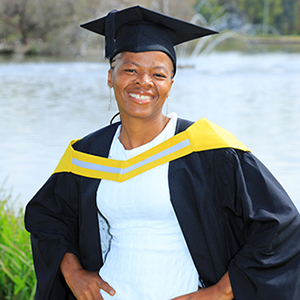
Cynthia Mkhari
An educator with 19 years of teaching experience, Mkhari says witnessing many learners having difficulty simplifying algebraic fractions motivated her to investigate the root causes of these misconceptions and errors in her master’s research on mathematics education.
Her passion for mathematics and education has sparked her curiosity about how misconceptions and errors might impact learners’ overall mathematical competency.
"I have a strong ability to convey complex mathematical concepts in a way that learners from different backgrounds can comprehend. I can support learners’ learning and foster a productive culture by collaborating with colleagues, parents and the community," she said.
Strong ability to convey complex mathematical concepts
Mkhari’s research field is mathematics education, which investigates how mathematics is taught and learned across different age groups and settings. It combines psychology, pedagogy and sociology insights to understand and improve teaching practices, curriculum design and student learning.
She says the field contributes to educational policy, teacher preparation and efforts to make mathematics education more equitable and effective for all learners.
Her topic for her master’s degree is "Exploring misconceptions and errors that manifest when Grade 10 learners simplify tasks involving algebraic fractions".
This study attempts to raise the standard of education in mathematics. "By understanding the common errors and misconceptions learners make when simplifying algebraic fractions, educators can create strategies that address these errors," stated Mkhari.
In addition, she said learners are more likely to comprehend the concepts and gain confidence in their mathematical skills when these errors are addressed. As a result, more learners will be inspired to continue their education in mathematics and related studies.
The research’s conclusions might additionally assist curriculum developers to produce materials that better reflect the comprehension of learners, which will enhance learning outcomes in various educational settings. Additionally, it can contribute to educational psychology by deepening insights into how learners process and make sense of algebraic fractions.
By helping stakeholders in the education sector be more knowledgeable, competent and confident in themselves, this research essentially intends to contribute to a better society.
Unisa Research and Innovation Postgraduate Student Showcase
In 2024, Mkhari participated in the annual Unisa Research and Innovation Postgraduate Student Showcase, where she emerged as the winner of the best oral presentation in the master’s category in the Arts and Humanities discipline.
The Postgraduate Research and Innovation Showcase is a premier event designed to illuminate the latest academic investigations and pioneering solutions. It aims to provide an interdisciplinary platform for postgraduate students from all colleges at Unisa to present their groundbreaking findings, share novel ideas and interact with a network of peers, industry leaders, community members and established academics.
To all prospective showcase participants, Mkhari said the decision to try is crucial to any outstanding achievement. "Being unique is what keeps you strong, and this showcase is the perfect platform for you to express your skills and creativity with the idea that your input counts."
As encouragement to postgraduate students, she remarked, "Step forward, shine your light and motivate others. You possess the ability to leave a lasting impression! This is about building a professional identity, influencing policy and practice. Your findings can inform educational initiatives. Sharing your work increases your academic and professional visibility, which can lead to collaborations, funding opportunities, speaking invitations and career advancements."
A trailblazer at Limpopo’s Department of Education
Mkhari worked as an educator from 2006 to 2017, teaching Mathematics, Physical Sciences and Mathematical Literacy.
From 2018 to 2021, she was the departmental head of Mathematics at Mashooro High School, Limpopo. She works for the Department of Education as a deputy principal at Khesethwane High School in Limpopo.
In 2016, she was awarded the certificate of being the best educator in the Mawa Circuit for teaching Mathematics for Grade 12s at Mpapatla High School and in 2022, she received a certificate as best educator in teaching Mathematical Literacy in Grade 12 at Khesethwane High School. The following year, she received a certificate for adjudicating at the 23rd National Teaching Awards for the Department of Education in the Mopani West District.
An educator who yearns to learn more to impart to others, Mkhari holds a BSc (Physics and Chemistry), a Postgraduate Certificate in Education, an Honours in Mathematics Education (cum laude), an Advanced Diploma in School Leadership and Management (cum laude) and a Master’s degree in Mathematics Education.
Grateful to the supervision of Unisa’s Dr Sophy Mamanyena Kodisang for guiding her to complete her master’s degree successfully, Mkhari said she intends to pursue a PhD in Mathematics Education.
* By Mpho Moloele, PR and Communications, Department of Research, Innovation and Commercialisation
Publish date: 2025-06-11 00:00:00.0


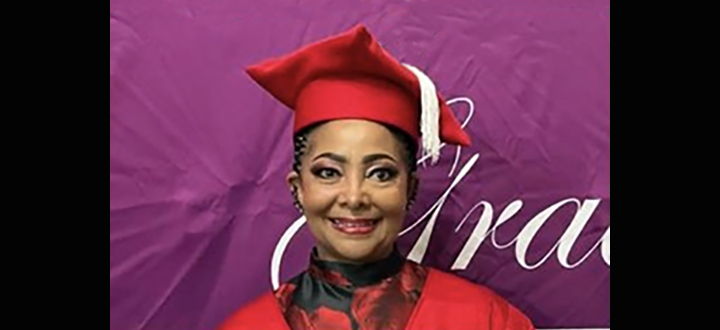 Turning obstacles into knowledge
Turning obstacles into knowledge
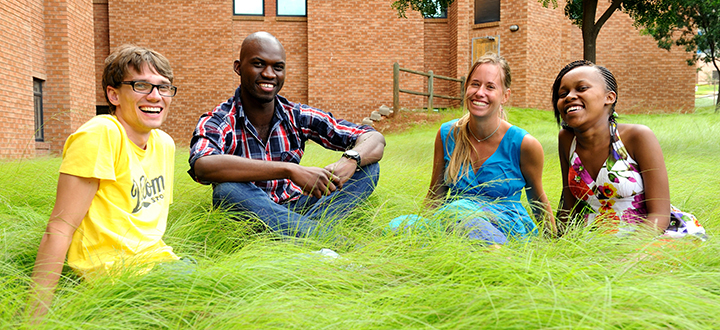 Unisa launches initiative to tackle student retention and academic success
Unisa launches initiative to tackle student retention and academic success
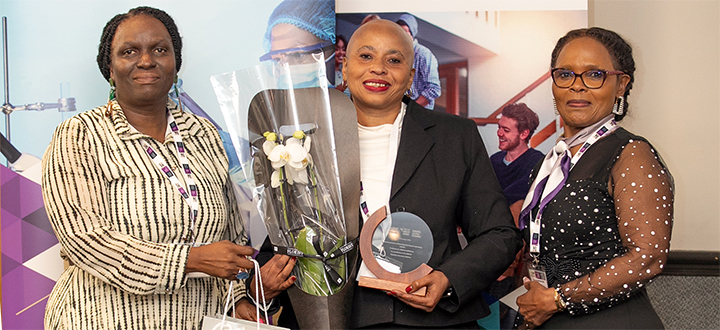 Unisan honoured for excellence in biomedical science and research
Unisan honoured for excellence in biomedical science and research
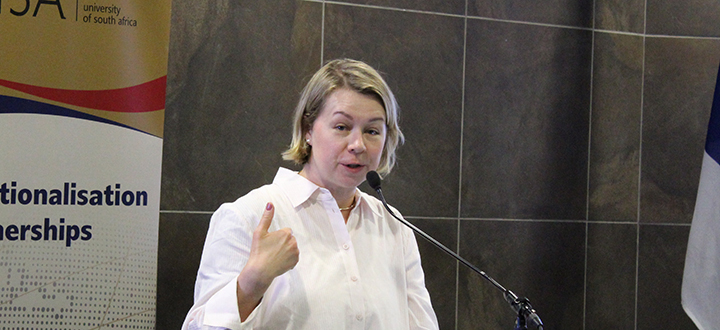 Unisa dialogue examines the enhancement of African agency via BRICS
Unisa dialogue examines the enhancement of African agency via BRICS
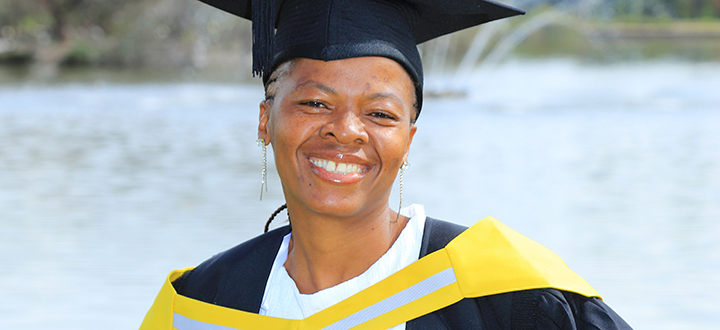 Demystifying misconceptions and errors in simplifying algebraic fractions
Demystifying misconceptions and errors in simplifying algebraic fractions